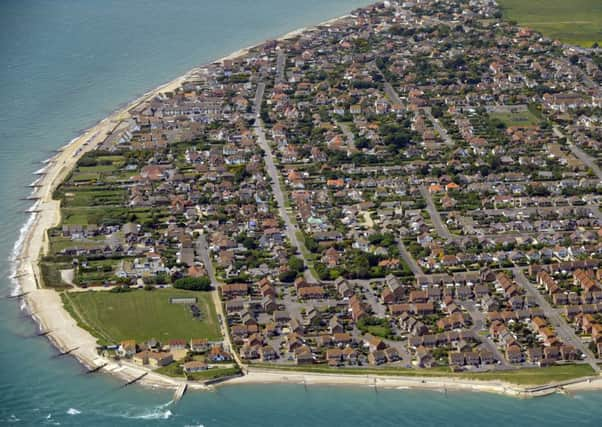Scheme to reduce pollution of Selsey's seafront


The council signed up to Southern Water’s Bathing Water Enhancement Project in December 2016 and was given a grant of £38,895 to tackle problems such as dog mess and litter on the town’s beaches.
Now, after approval from a meeting of members on Tuesday (July 24), that money can be spent.
Advertisement
Hide AdAdvertisement
Hide AdThe council aims to run publicity campaigns, install signage and bins, carry out warden patrols of the area and enforce dog bans on the beach.
The meeting was told the action would begin immediately to cover the current bathing season, which ends in September, and would be in place for next year’s bathing season.
Whether funding will be available to continue after 2019 was not confirmed.
Presenting the report, John Connor (Con, Selsey North) told members that a working group, made up of councillors and officers from the district council and Selsey Town Council, along with representatives from Southern Water, had been working on the project for the past 18 months.
Advertisement
Hide AdAdvertisement
Hide AdMr Connor said Southern Water had been able to identify and rectify a large number of sources of contamination to the bathing water at East Beach, including the accidental or illegal misconnection of sewers or drainage ditches.
Pollution caused by people and animals, though, has not been so easy to deal with, hence the need for a range of ‘positive actions’ to drive home the message that the beaches need protecting.
Mr Connor, cabinet member for environment services, said: “I hope that once the proposals have been implemented, public awareness of them will remain and be observed into the future.
“I also hope that the anti-social practices of some that led to the implementation of this project will largely disappear.
“Whether that will happen is yet to be seen.”
Advertisement
Hide AdAdvertisement
Hide AdSimon Oakley (Con, Tangmere) added: “Hopefully this initiative will highlight the public health issue of people leaving waste food around the place, which attracts vermin.”
In an effort to cut down on bird mess, the project will see hawk-shaped kites installed on buildings and structures where birds roost.
When Simon Lloyd-Williams (Con, Chichester North) suggested that using real hawks to kill or drive off other birds would be a better way of dealing with the issue, Mr Connor joked: “Seabirds are, in the main, a protected species, so we can’t actually do anything.
“Otherwise I’d be down there with a machine gun some days.”